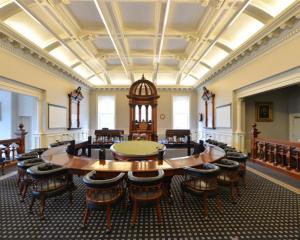Council marketing communications agency manager Debra Simes said the conference was expected to make a profit, and would have wider advantages for the city than just the initial financial benefit.
The council announced last Monday that Dunedin had secured the 2013 Global Botanic Gardens Congress, which was expected to bring up to 500 people to the city, and benefit the economy by $2.9 million.
It also announced the conference would be held at the Forsyth Barr Stadium, the first conference booked for the stadium.
The conference was expected to make a projected profit of $15,000, through sponsorship agreements and subscriptions.
The figures have been criticised in letters to the editor of the Otago Daily Times and in most of the 20 responses to the story in the newspaper's online comments section.
Those questioned the council's financial input, claiming the council was subsidising the event, and questioned the estimated economic return.
One questioned whether the council was paying for conference-goers' accommodation and attendance.
Council marketing communications agency manager Debra Simes said the council was not paying those costs.
As part of the council's bid for the conference, it was required to put together a budget showing the total cost, and total income of the conference, but that was not money the council was spending.
The budget was based on 500 delegates attending the conference, with a total cost of $758,000.
It included venue hire, speakers' fees, conference set-up costs, and "all the things involved in hosting a conference".
The conference income, she said, was within the same budget, and was projected to be $774,000.
That was made up of registration income of $454,000, the hire of exhibition stands at $150,000, commercial sponsorship $100,000, and a payment from the council as host of $70,000.
The council was putting that money into the conference because it supported events that brought visitors to the city and generated new income, Ms Simes said, and payment of the $70,000 would be spread across three years.
The money predicted to be spent by delegates was calculated using research done by Conventions and Incentives New Zealand, an organisation that worked to increase New Zealand convention and meeting activity.
The research showed the estimated average "direct delegate expenditure" for a multi-day conference in New Zealand was $4079, which, with 500 delegates, came to $2 million.
The figure included everything from registration fees to hotel bills, and some of the estimates that made up the cost were very conservative, she said.
The $2.9 million figure included $900,000 of "added value", which took into account the "flow-on effect" of money introduced into the economy.
"It's a great investment," Ms Simes said.












